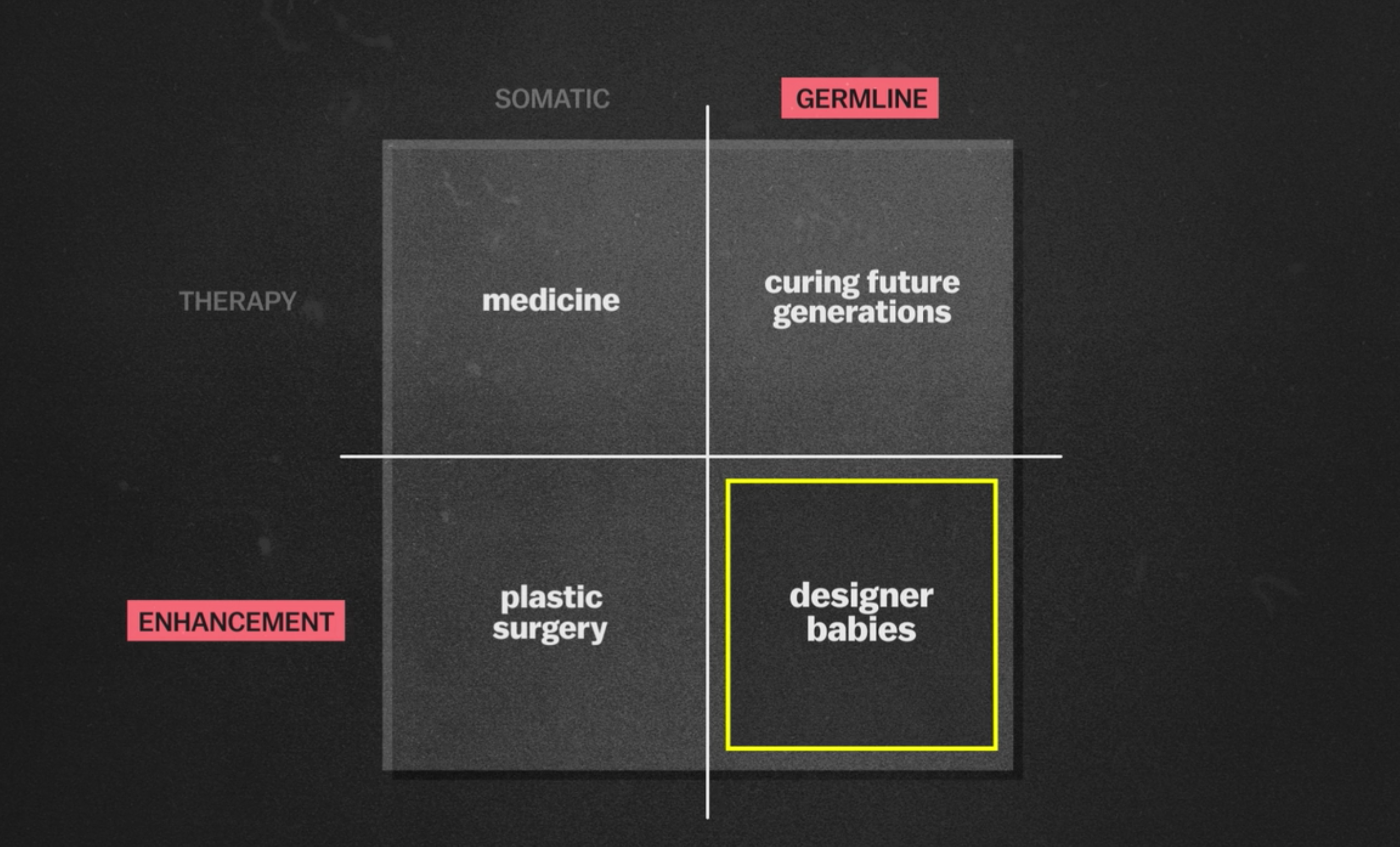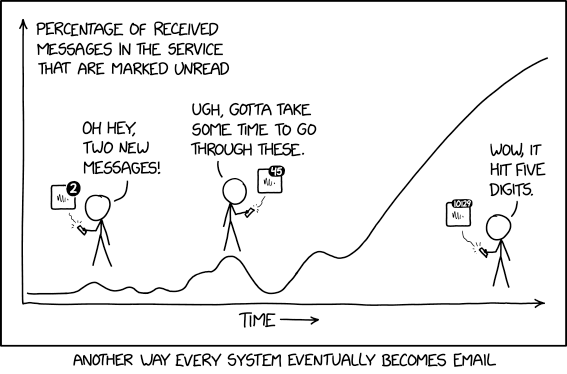An interesting overview from McKinsey on how economic outcomes and the relationship between individuals and institutions have shifted for workers, consumers, and savers in advanced economies.
More details here: [The Link]
An interesting overview from McKinsey on how economic outcomes and the relationship between individuals and institutions have shifted for workers, consumers, and savers in advanced economies.
More details here: [The Link]
A pretty interesting documentary from DW on this topic.
Also, learned about this intereresting field of Agnotology: A study of culturally induced ignorance or doubt, particularly the publication of inaccurate or misleading scientific data. Wiki Link
Probably you have received advice of this in one form or the other: be yourself, be authentic… etc. Came across an article that goes a bit deeper into the history of where such thinking originated. It is an interested read. Here are a couple of interesting paragraphs from this article.
“How can one avoid the pitfalls of this phoney authenticity? More historical awareness of where our ideals of authenticity and freedom come from can help. As the American political philosopher Matthew B Crawford details in his book The World Beyond Your Head (2015), the narcissist has a mistaken idea of freedom. Crawford follows Adorno and Lasch, agreeing that the groundlessness of human action doesn’t imply that human beings are or should be completely autonomous. We’re born into a particular place and time, with particular psychological and physical attributions, and with particular people and traditions available to us that we can draw on or reject. These constraints are debilitating only if we see them as such, if we consider them as fetters from which the self should ideally be free. In reality, many rules and constraints are enabling: they are the conditions of freedom, not the barriers to it. They are the friction that allow us to move forward.”
“Learning a craft can teach us a lot about what exactly it is to actualise a self. The word ‘authenticity’ comes from the Greek authentes for ‘master’ or ‘one acting on his own authority’ (aut = self and hentes = making or working on/crafting). Importantly, it doesn’t mean ‘self-maker’ in the reflexive sense of one who makes himself, but one who makes or acts according to his own will – making from out of the self. And in crafting of our accord, we do actually actualise ourselves. We transform inner feelings into something real.”
More of this article here from Aeog mag: [The Link]
Also check out the website: Psyche | on the human condition
Below is a list of top 10 emerging tech in 2020 as identified by Scientific American.
More of these technologies at SciAm here: [The Link]
For those who grew up with adventures of Tintin, here is a nice documentary about its creator Herge. Documentary goes over the context of some of the comics of Tintin through the ages. If you happen to be in Belgium, might be worth a visit to Tintin museum (Musee Herge) as well.
Recently came across a great collection of articles from David Brooks in the NYtimes. It has been Brook’s recurring list as Sydney Awards. Here is the list and brief commentary on each from David Brooks [NYTimes article Link] Here are the articles mentioned the above link:
Few on the lighter side of things, also from the same NYTimes article:
Recently read about this long term bet between K. Kelly (techno optimist) and K. Sale (techno skeptic). The best was set in 1995 that by 2020 the world would collapse and tech aspects would have been a major contributing factor in driving the collapse (economic, climate & inequality). Few interesting excerpts from the article here, especially by the arbiter W. Patrick:
Economic Collapse. Sale predicted flatly that the dollar and other accepted currencies would be worthless in 2020. Patrick points to the Dow at 30,000 and the success of new currencies such as Bitcoin. “Not much contest here,” Patrick writes. Round goes to Kelly.
Global Environmental Disaster. Kelly tried to argue that despite worsening climate change, people are still living their lives pretty much as usual. “If this is a disaster, that is not evident to Earth’s 7 billion inhabitants,” Kelly wrote in his four-page argument. But Patrick isn’t convinced. “With fires, floods, and rising seas displacing populations; bugs and diseases heading north; ice caps melting and polar bears with no place to go; as well as the worst hurricane season and the warmest year on record, it’s hard to dispute that we are at least ‘close to’ global environmental disaster,” Patrick wrote in his final decision. This one is Sale’s.
The War Between Rich and Poor. Sale’s book cites devastating statistics on income inequality and the frayed social fabric. If he had written his book after the pandemic, the picture would be even worse. But are the classes at war? Patrick notes that in the decades since Kelly and Sale made the bet, breathtaking economic development has reshaped China and India, among other countries. On the other hand, he points to undeniable social unrest, even in the United States, with Trumpites taking to the streets with semiautomatic weapons, and massive protests against police abuses. He calls this round a toss-up, with an edge to Sale.
Of course, all bets are off. They have not yet resolved the bet.
Read more of this here from WIRED: [The Link]
Genetic editing is a very broad term used for techniques used in various different domains. With recent Crispr tech, this technology, especially in human context is currently in debate/discussion in all forums. One categorization that gives some clarity in this discussion is from a short documentary in Netflix Explained: Designer DNA. This figure explains the design space of editing DNA.
Somatic: DNA does not get passed down to off spring
Germline: DNA passes to next generation
More of this here: Explained: episode on Designer DNA
Article explaining this in more detail: [Article in Medium]
A mini series in Netflix: Unnatural Selection

Great XKCD comic on how all things tend to become unread emails: notifications, messages, rss feeds, chats.. and of course emails.

An interesting 3 part article by Vasily Zubarev at dpreview on Computational Photography (CP). CP means many things, involves all aspects from sensors to optics to signal processing..
From the article, “Everywhere, including Wikipedia, you get a definition like this: computational photography is a digital image capture and processing techniques that use digital computation instead of optical processes. Stanford Professor and pioneer of computational photography Marc Levoy (he was also behind many of the innovations in Google’s Pixel cameras) gives another definition – computational imaging techniques enhance or extend the capabilities of digital photography in which the output is an ordinary photograph, but one that could not have been taken by a traditional camera.” …
He concludes..
“Throughout history, each human technology becomes more advanced as soon as it stops copying living organisms. Today, it is hard to imagine a car with joints and muscles instead of wheels. Planes with fixed wings fly 800+ km/h — birds don’t even try. There are no analogs to the computer processor in nature at all.
The most exciting part of the list is what’s not in it. Camera sensors. We still haven’t figured out anything better than imitating the eye structure; the same crystalline lens and a set of RGGB-cones like the retina has.
Computational photography has added a “brain” to this process. A processor that handles visual information not only by reading pixels through the optic nerve but also by complementing the picture based on its experience. Yes, it opens up a lot of possibilities for us today, but there is a hunch we’re still trying to wave with hand-made wings instead of inventing a plane. One that will leave behind all these shutters, apertures, and Bayer filters.
The beauty of the situation is that we can’t even imagine today what it’s going to be….”